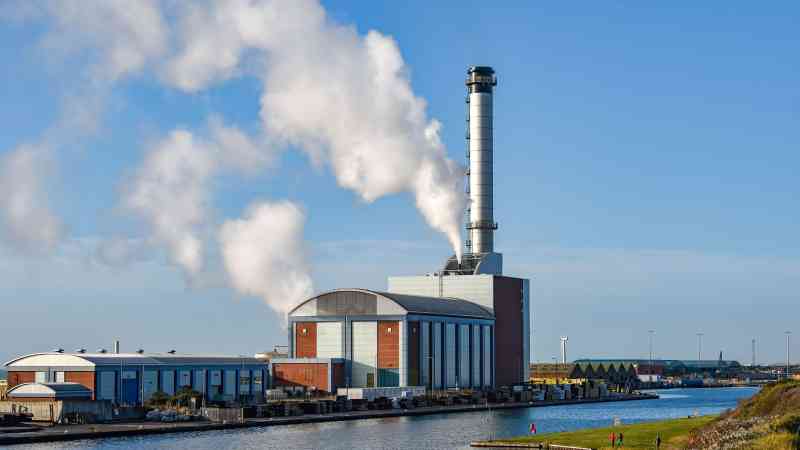Gas prices are likely to stay high for up to two years, the boss of Britain’s biggest energy supplier has said.
Chris O’Shea, chief executive of Centrica, the British Gas owner, said that there was little Britain could do to change this as it was “part of a global market”.
High wholesale gas prices are threatening to drive a record increase in energy bills of as much as 50 per cent to £2,000 a year from April.
Prices rose over the course of last year amid a global shortage of gas that has left Europe and Asia competing for scarce cargoes of liquefied natural gas. They rose to all-time highs before Christmas and are still trading at about four times the historical average.
In an interview with the BBC, O’Shea said: “There’s no reason to think that energy prices will come down any soon — the market suggests that high prices will be here for the next 18 months to two years. As we move towards net zero, gas is a big transition fuel, so as you turn off coal-fired power stations in other countries, there’s more demand for gas, but there isn’t an abundance of gas that you can just turn on quickly.”
Energy suppliers have been in talks with the government over potential measures to help alleviate the increase in bills, although there is no real consensus within either the industry or government on the best way forward.
O’Shea said it was “inconceivable that we don’t do something” to tackle bill rises. He reiterated his calls for the government to ease the pain for households by removing VAT from energy bills, moving environmental levies into general taxation and delaying charging customers for the costs of a raft of supplier failures. These measures combined could alleviate about half of the forecast price rise, he said.
Further help could be offered to those most in need, but extending the government’s warm home discount scheme, which gives rebates to vulnerable customers, could be problematic because it is funded by levies on all bill-payers, he said. “The way the warm home discount works is that the cost of that scheme is met by customers. So if you increase it, you increase energy bills and we think that whatever relief comes has got to not be at the expense of hard-pressed energy consumers,” he said.
O’Shea said the prospect of gas prices staying high for a long time meant that plans to temporarily loan energy companies cash to smooth the impact of high wholesale prices for consumers may be flawed.
He said there was little that Britain could do to alter wholesale prices. “I’m not sure an increase in UK supply would have brought the price down from £3 a therm, as it was in December, to 50p as it was a year ago,” he said. “We bring gas in from the United States, from Norway, from Europe, from Qatar, from other places. So we’re not in a position to simply have the UK as an isolated energy market. We are part of a global market.”
Stephen Fitzpatrick, the boss of Ovo Energy, Britain’s third-biggest energy supplier, echoed warnings about persistent high prices. “It is easy to imagine a world where energy prices stay high for a long time,” he said, adding that markets implied “that energy prices will come back down again a little bit in 2023”.
He said it was “absolutely unbelievable that five months into this energy crisis we still have not heard from the government what their suggestions are”.
In an interview on Today on Radio 4, he said: “Unless the Treasury realises the impact on consumer finances, consumer spending, the impact on the broader economy, the inflation that’s going to feed through into our entire financial system — unless they comprehend how significant this is in the coming weeks, we are going to face a real tragic situation where UK households are going to be left where they cannot afford to heat their homes, and we’re going to see the spillover into the broader economy.”
Fitzpatrick also apologised for a “ridiculous” email sent by SSE Energy Services, which Ovo owns, to its customers advising them to cuddle a pet or eat porridge to keep warm.
“We’re a large company and somebody had a bad day. They sent out an email and the truth is, we should have caught it,” he said. “It’s really upsetting and embarrassing for me to come on air and apologise for something that we really should never have written.”
